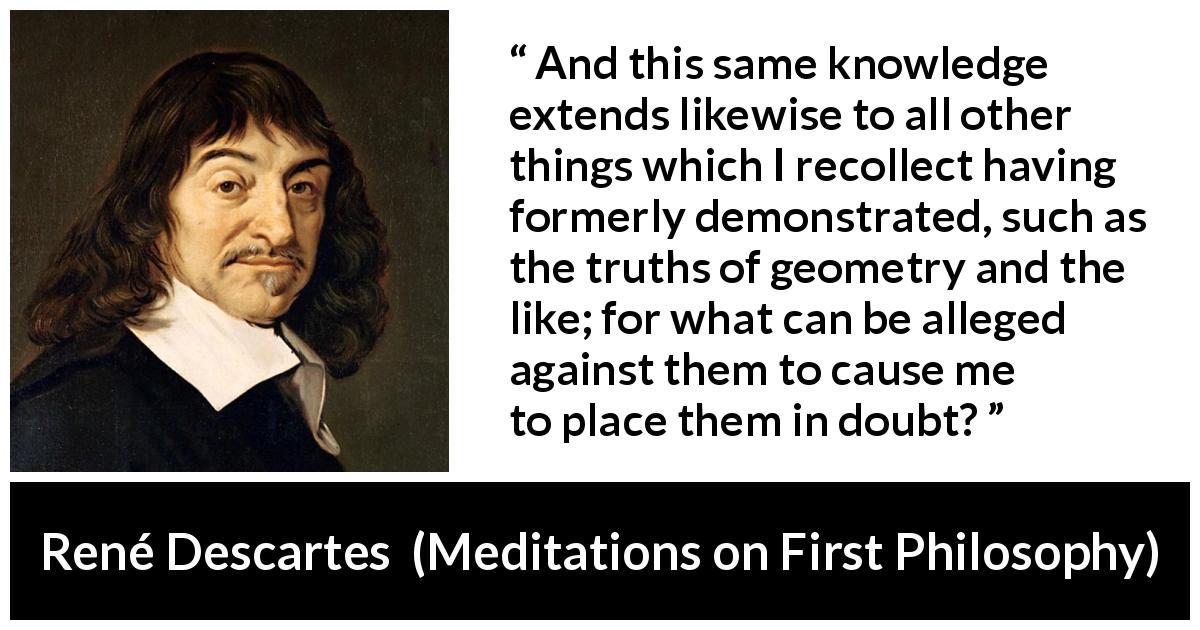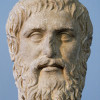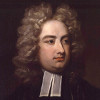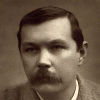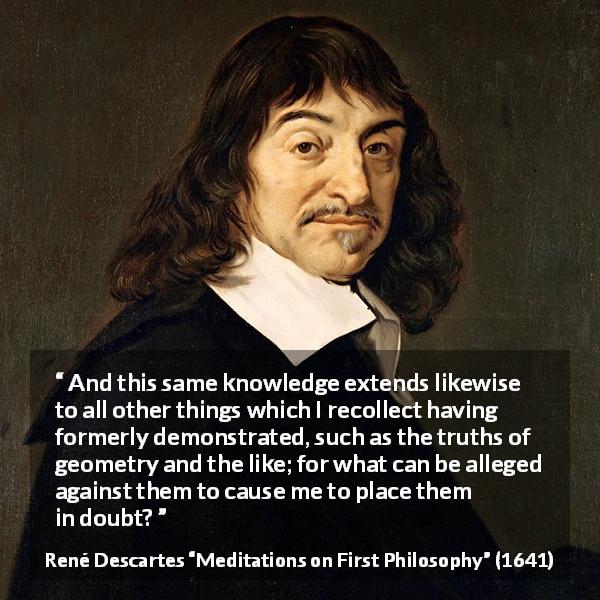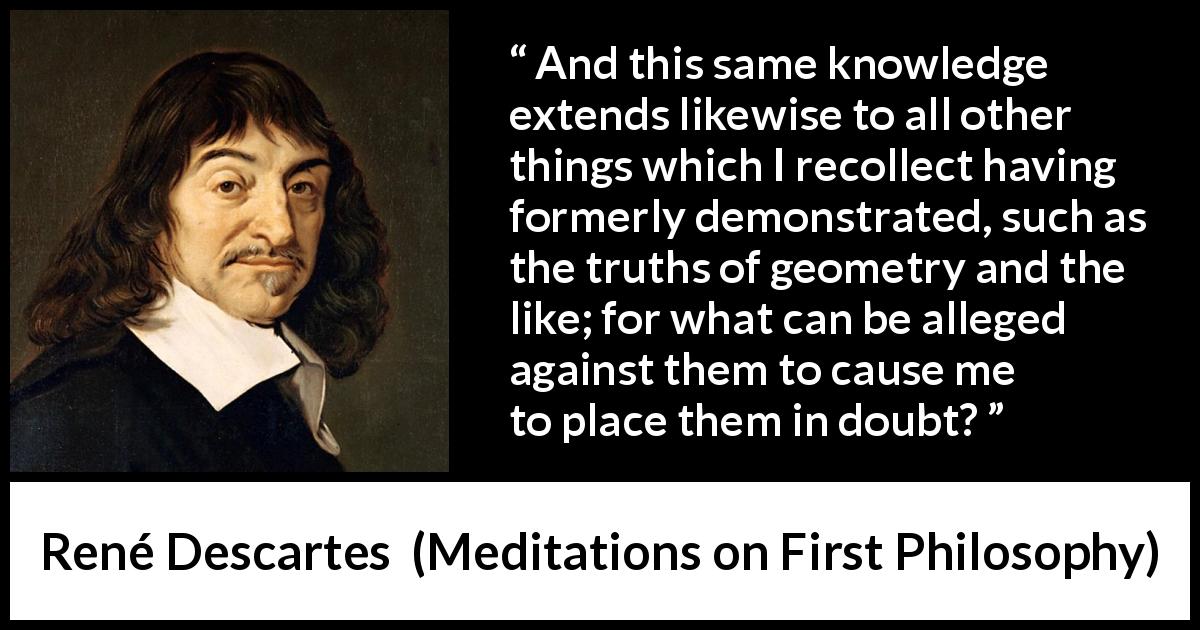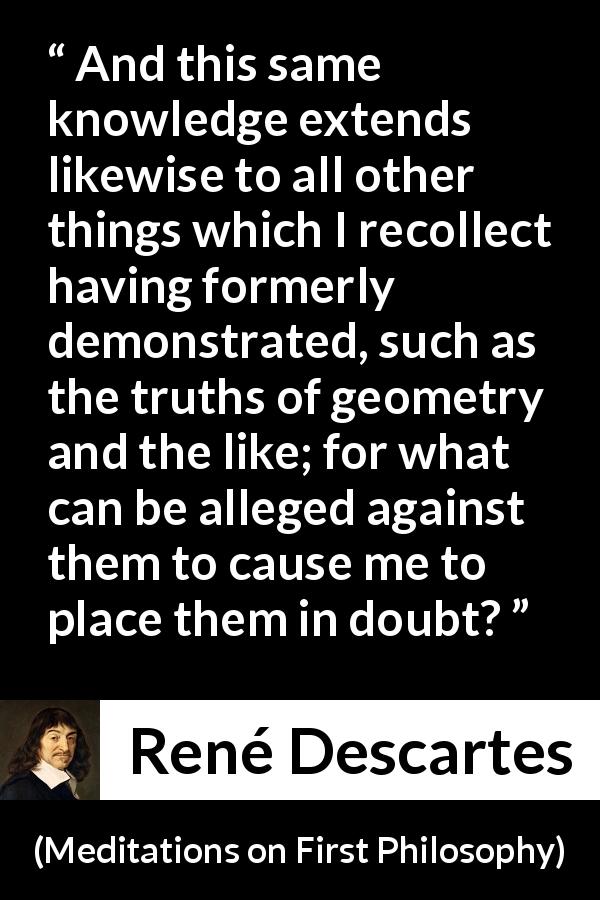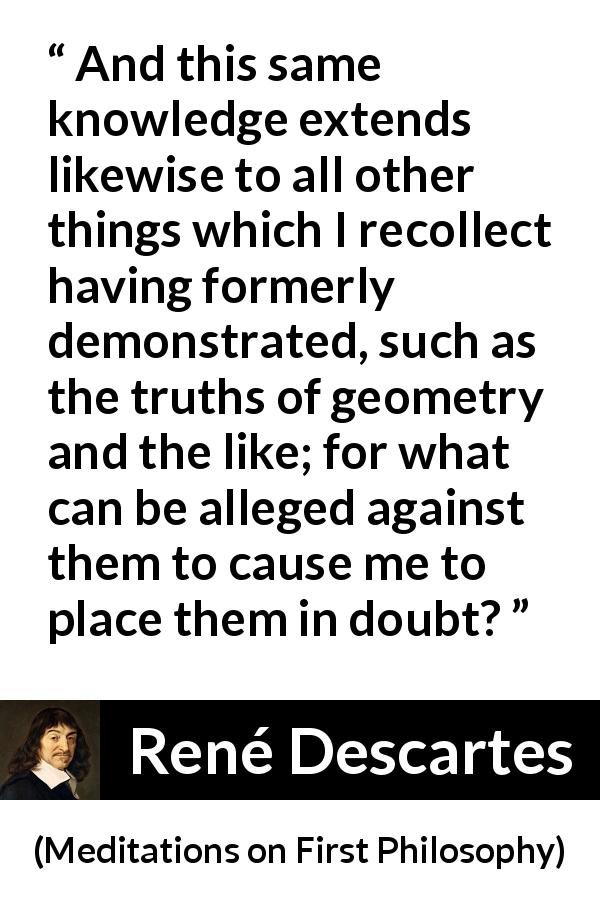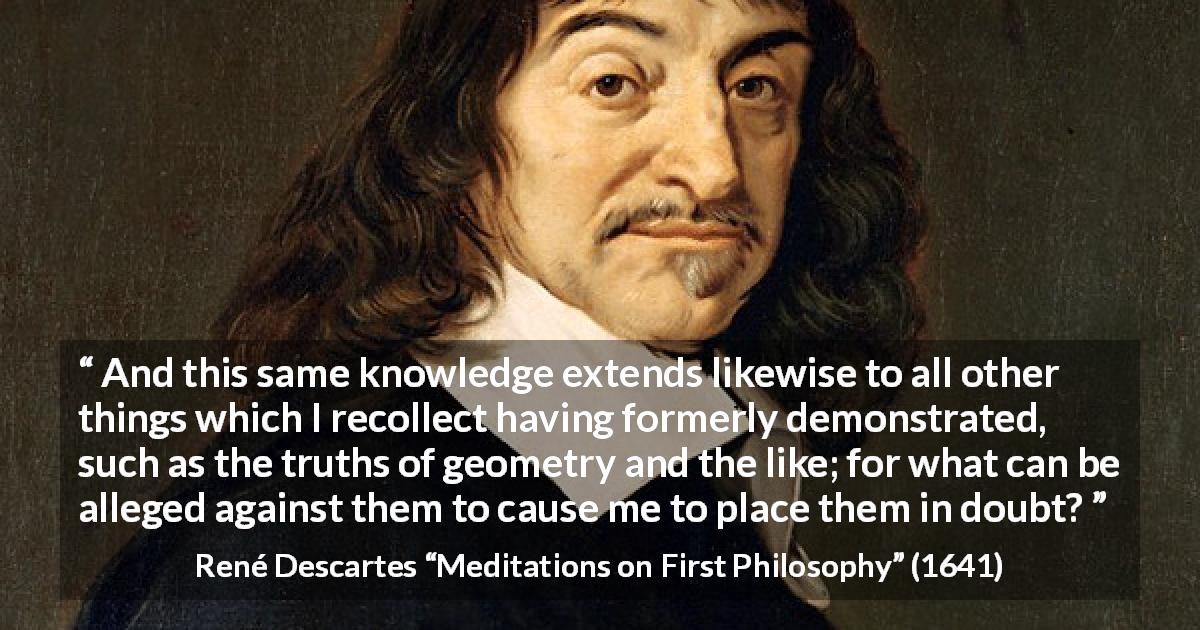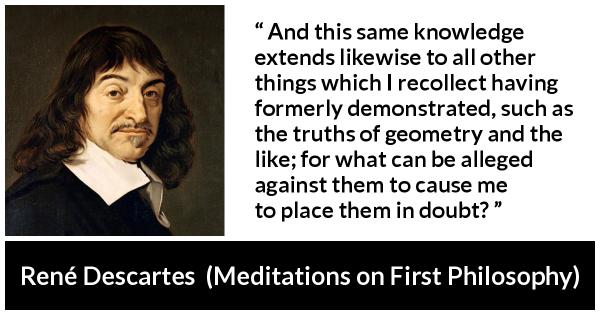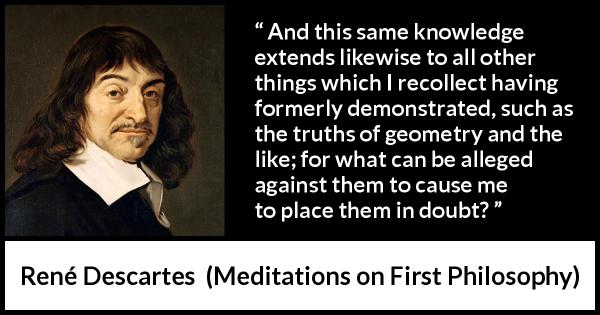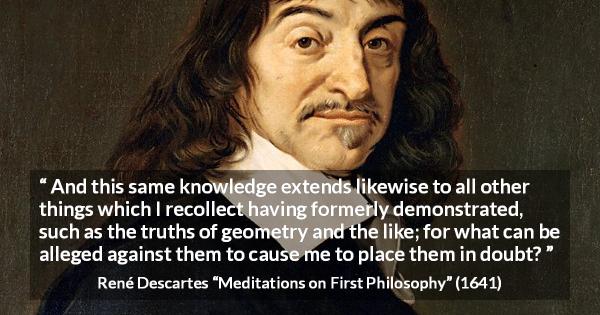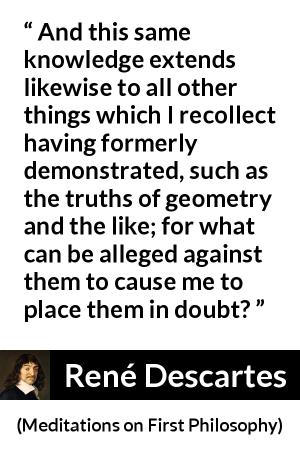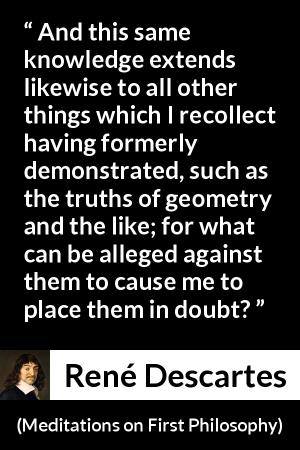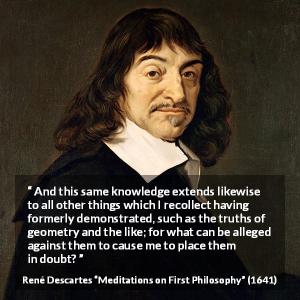“ And this same knowledge extends likewise to all other things which I recollect having formerly demonstrated, such as the truths of geometry and the like; for what can be alleged against them to cause me to place them in doubt? ”
René Descartes, Meditations on First Philosophy (1641). copy citation
| Author | René Descartes |
|---|---|
| Source | Meditations on First Philosophy |
| Topic | doubt knowledge geometry |
| Date | 1641 |
| Language | English |
| Reference | |
| Note | Translated by Elizabeth S. Haldane |
| Weblink | http://selfpace.uconn.edu/class/percep/DescartesMeditations.pdf |
Context
“But after I have recognized that there is a God—because at the same time I have also recognized that all things depend upon Him, and that He is not a deceiver, and from that have inferred that what I perceive clearly and distinctly cannot fail to be true—although I no longer pay attention to the reasons for which I have judged this to be true, provided that I recollect having clearly and distinctly perceived it no contrary reason can be brought forward which could ever cause me to doubt of its truth; and thus I have a true and certain knowledge of it. And this same knowledge extends likewise to all other things which I recollect having formerly demonstrated, such as the truths of geometry and the like; for what can be alleged against them to cause me to place them in doubt? Will it be said that my nature is such as to cause me to be frequently deceived? But I already know that I cannot be deceived in the judgment whose grounds I know clearly. Will it be said that I formerly held many things to be true and certain which I have afterwards recognized to be false?”
source
